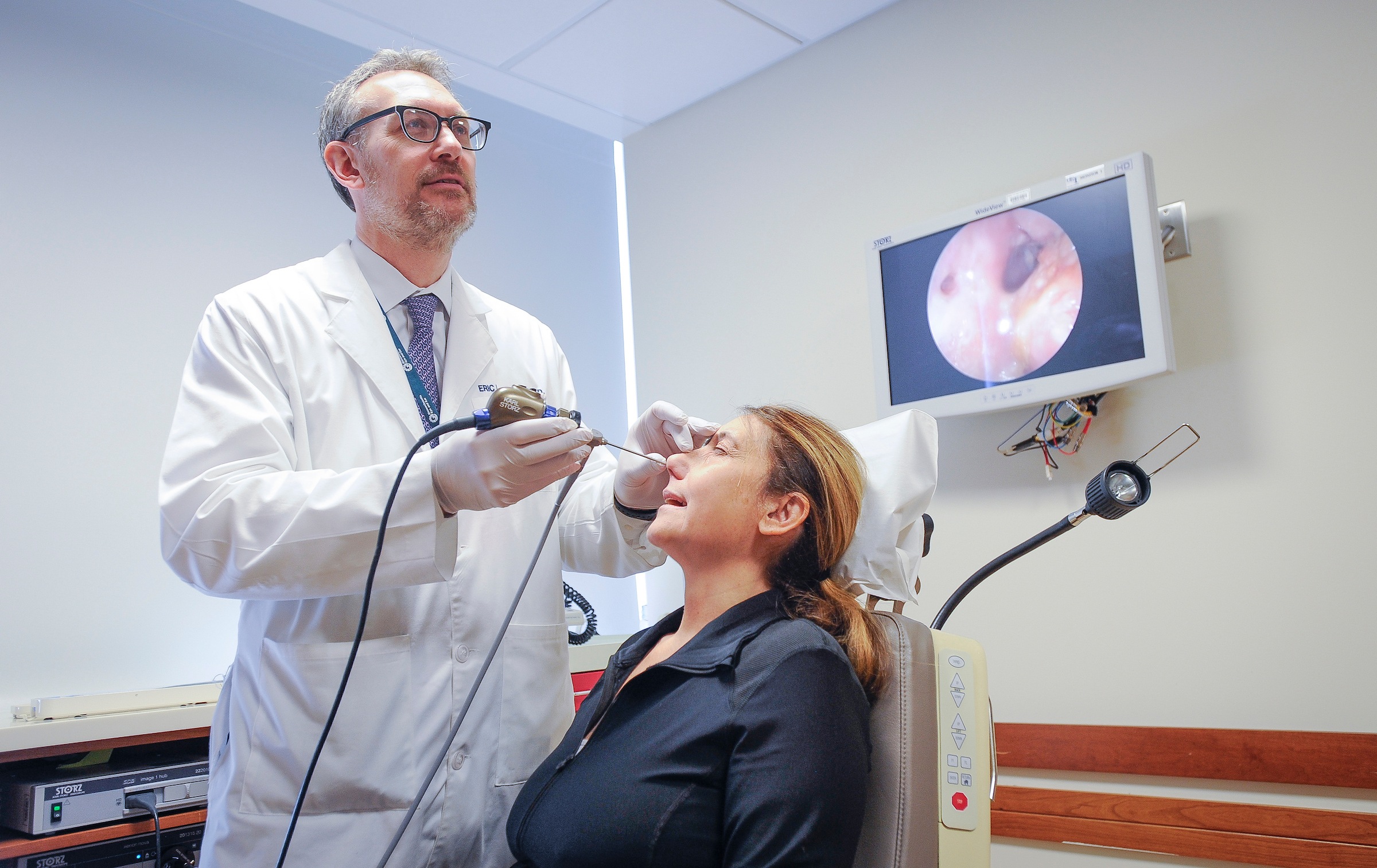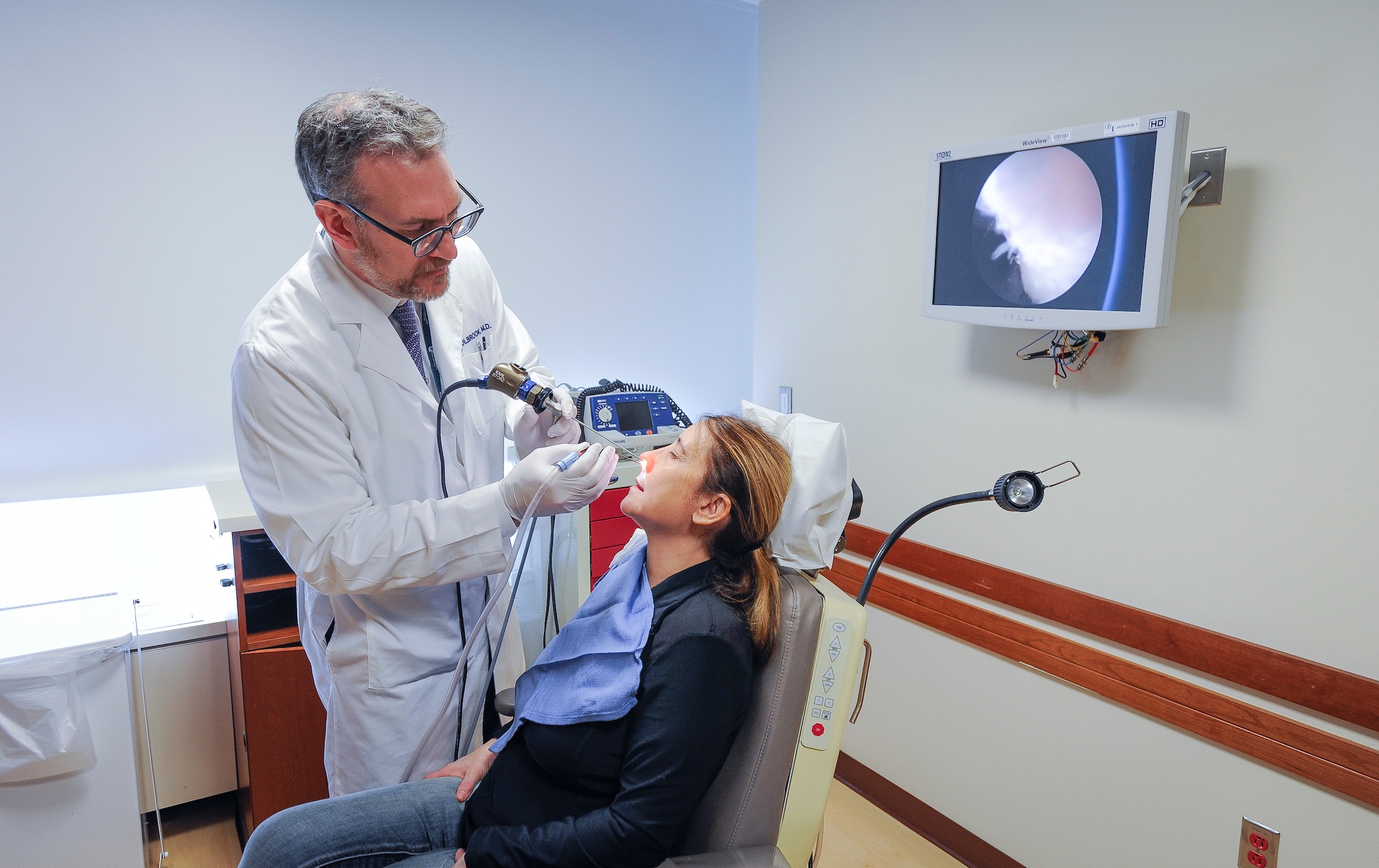Does the Coronavirus Cause a Loss of Smell? An Expert Weighs In
Sniffing but suddenly struggling to detect scents around the home? Recent studies show that a loss of smell is sometimes an early symptom of COVID-19, and the Center for Disease Control and Prevention (CDC) now includes it alongside the loss of taste in their new coronavirus symptoms list.
Doctors around the world are reporting a reduced loss of smell and taste, or anosmia, in a large percentage of people who test positive for the disease. In Germany, more than two out of three cases have anosmia, while in South Korea, where testing has been more widespread, 30 percent have reported a loss of smell as their major symptom in otherwise mild cases.
Dr. Eric Holbrook, chief of Rhinology in the Sinus Center at Massachusetts Eye and Ear, is researching whether loss of smell can be used as a diagnostic marker for patients with the virus. Here’s what he says may cause anosmia, when to seek help, and what is known about patients recovering their loss of smell.
How COVID-19 Might Cause Smell Loss
According to Dr. Holbrook, an ear, nose, and throat (ENT) specialist who researches ways to treat permanent smell loss, the exact cause of anosmia is unknown. He points to inflammation or damage to the olfactory nerve caused by the coronavirus as what might be reducing or eliminating the sense of smell.
“It may be caused by the viral infection, and the reaction to the tissue around it, or the virus could be causing an inflammatory response and temporarily disabling the nerve, or preventing odors from getting in the nose,” says Dr. Holbrook.
Often, people who have reported smell loss have noted a loss in taste too. Given smell and taste are used in combination to sense flavor, it can be hard to distinguish the difference, Dr. Holbrook says. He adds that a challenge for doctors and people with this symptom is that other upper respiratory infections, such as influenza or a cold, might cause reduced or lost smell.
When to Call Your Doctor
Dr. Holbrook says that while there is currently no hard evidence that loss of smell is always a symptom of coronavirus, it’s better to be safe than sorry and seek help if your nose isn’t as effective as usual.
“I’d be suspicious of possible COVID-19 infection with anyone who calls my office with a sudden onset of loss of smell,” says Dr. Holbrook. “If someone is experiencing sudden smell loss, especially in the context of the other symptoms being reported for the coronavirus, including fever and breathing problems, that person should contact his or her primary care doctor.”
How Long Until Sense of Smell Returns
The good news is, losing your smell to COVID-19 is rarely permanent. Dr. Holbrook observed reports that show the majority of patients appear to recover their sense of smell within about two weeks of infection. If smell loss lingers, he adds, then it’s best to see an ENT specialist for a full exam to make sure it’s not caused by something else.
At this point, though, Dr. Holbrook says that it is too early in the process to know how many people with COVID-19 actually have smell loss and how long the smell loss can last. For now, he suggests those who have a sudden onset of smell or taste loss isolate themselves and contact their primary care physician for further advice on testing.
“This a unique opportunity to figure out what exactly causes smell loss,” says Dr. Holbrook. “Looking for clues in COVID-19 research could inform viral anosmia treatments and therapies in the future.”
In response to COVID-19, patients in Massachusetts may now schedule a virtual visit for non-urgent appointments with an ear, nose, throat, head, and neck physician at Mass. Eye and Ear. To request an appointment, please call your physician’s office directly. To learn more, visit MassEyeAndEar.org/virtual-visits.
This is a paid partnership between Massachusetts Eye and Ear and Boston Magazine







